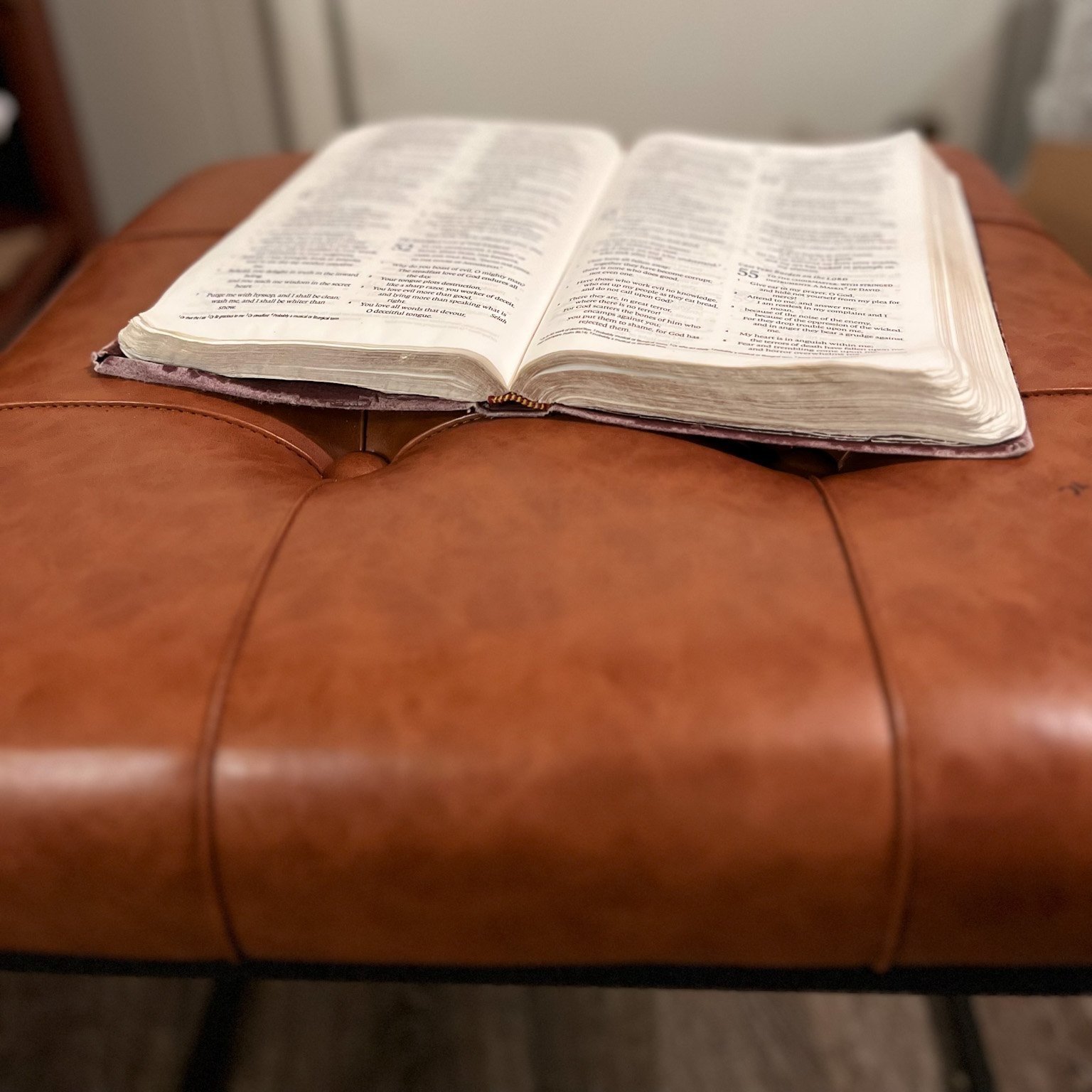Having an Evergreen Relationship with God

Seek Him first, then add the rest
For those of us who are Christians, this is our mantra: we want to seek God first, then add the rest. But if we’re supposed to be seeking the kingdom of God, what exactly is it?
Looking at it literally, a kingdom is the anywhere where the king is in charge.
We know of the made-up kingdoms in stories woven together by human authors that make our imagination soar and the kingdoms of the past that seem impressive yet all that now remain are some ruins.
But the kingdom of God?
Well, if it’s where God, the King, is in charge then it’s the only kingdom we’d want to seek…

Seeking God all the days of our lives
As God’s own, we want to be everseeking — not of anything, but of God! It can be so easy to stop seeking sometimes. Either it seems like it’s too much work or we just become apathetic to it. Even David, the humble shepherd turned mighty king, seemed to have felt the same way. Of all the things he could’ve asked of God and of all the things he could’ve sought after, it just came down to one thing. It wasn’t vanity of vanities, like what his son struggled with (Ecclesiastes 1:1-2), no ivory throne nor fleet of ships (1 Kings 10:18, 22). Rather, David asked for something that would last much longer: he wanted to be with God.
He doesn’t just say that, though. He describes it like he’s painting a masterpiece of a picture, intricately giving us detail of how we can seek God, even today.

Do you love him?
When we first started Evergreen (by starting LIGHT group for teen girls), one of the most basic questions was, “What part of the Bible are we going to study first?”
There are so many good books of the Bible to choose from — it’s almost impossible to just start with one! But the reason we picked Ephesians is simple: it’s full of the truth in love.
It gives the big picture of what God did for us along with the details of how we can truly live for him, all within the context of how much God loved us and gave himself up for us.

One look from Jesus
If I was Peter, I think I would’ve crumpled into a million pieces. He had just spent all that time with Jesus. He witnessed countless miracles and heard Jesus’s gentle wisdom day after day. He had just said he was ready (Luke 22:33)! And yet, after all that, in the moment of truth and when it was the worst time for Jesus, Peter denied that he even knew him.
And that’s when the Lord turned and looked at Peter.
“And after an interval of about an hour still another insisted, saying, “Certainly this man also was with him, for he too is a Galilean.” But Peter said, “Man, I do not know what you are talking about.” And immediately, while he was still speaking, the rooster crowed. And the Lord turned and looked at Peter. And Peter remembered the saying of the Lord, how he had said to him, “Before the rooster crows today, you will deny me three times.” And he went out and wept bitterly.” Luke 22:59-62

Why Ephesians?
When we first started Evergreen (by starting LIGHT group for teen girls), one of the most basic questions was, “What part of the Bible are we going to study first?”
There are so many good books of the Bible to choose from — it’s almost impossible to just start with one! But the reason we picked Ephesians is simple: it’s full of the truth in love.
It gives the big picture of what God did for us along with the details of how we can truly live for him, all within the context of how much God loved us and gave himself up for us.

Forgiven from sin, preserved from trouble, instructed by God
Our lives are different. It’s hard to explain to someone who doesn’t trust in God, but for us, it’s a whole other story. We’re no longer vulnerable and weighed down by sin, wandering and wondering where to go. We have had that heavy burden of constant sin lifted from our shoulders. And even when life gets difficult, we aren’t fearful of eternity. We are instructed by the one who sees our path and directs us in the way we should go. It’s an incredible life. And it’s ours — the life of one who follows God. This is what Psalm 32 is saying. So let’s break it down.

Honoring and sharing Christ
You don’t honor someone you don’t value. Honoring and valuing go together. When we value someone, people know. It’s obvious based on how we talk about them, how we treat them, or even how we think about them. Honoring them shows others that we think they are worthy. And more than anyone else, who deserves this more than Jesus? We can’t even wrap our minds around how worthy he is. But are we honoring him in a way that’s obvious to others, that if someone asks us, it’s natural to talk about how much we love him? That’s what 1 Peter 3:15 is saying. So let’s break it down.

given. remembrance. covenant.
This Passover was different. The first Passover used the blood of an innocent lamb, but this one would have the blood of the innocent Lamb. When Jesus ate with his disciples, it was in preparation for the sacrifice that would far outlive all others. Because this sacrifice would be God himself…

What do I do if I feel far from God?
It’s a place that we don’t want to be, but inevitably where all of us find ourselves: far from God. Just like most things, though, sadly, it’s nothing new to God. Since the beginning of time, God has had to see his people distance themselves from him. But he did everything, even before we sinned, to bring us back to him (Ephesians 1:4). And we want to be near God, too, especially if we know the goodness of what that’s like! But even if we know God has done everything and our part is small, it seems so hard to know where to start to take that step closer to him. The reason may not be the same for most of us, but there are a few common ones: we just don’t trust him, we feel guilt and shame, or we feel indifferent. Thankfully for us, we aren’t the first to struggle with any of these and we are able to see what to do from others' journeys, from Naomi to David to the church in Laodicea. So how did they get far from God, but more importantly, what was the answer for them to grow closer to God?

What does the Bible means to me?
It's another one of those questions that we know the answer to technically.... But if it's just you and God in a moment of quiet, and He asks you this question, what would you honestly say?
There are several ways we could answer. Most of us would agree that the Bible means Truth, and that by it we have given ourselves to Christ. But then when we say all the right things (things we really do mean), how do we then treat God's Word in our daily lives to reflect what we just said?
It’s something that we are continually working on, but this is our goal: to trust, to hold dear, and to need it to live.

How do I actually study the Bible?
So we know we should study the Bible on a personal level… but how do we really do that? We could be following God sincerely for years and feel very stuck on this one thing. And sometimes being stuck on that one thing makes us feel away from God. And it’s a hard cycle to break.
But it can be broken! Finding how do actually study the Bible may come in all sorts of different ways (and we’ll look at several later on!). There isn’t one right way, but there are a few key things that are very helpful to get started in studying the Bible.

Why should I personally study the Bible?
We know we should study the Bible. It’s something that’s been told to us time and time again. And we know that it’s important. That’s not the problem. The problem is honestly answering this question for ourselves: why?
We’re not asking why theoretically. And we’re not asking it to gain more knowledge. We need the reason to change who we are at our core.
Because until we know and believe the answer, it doesn’t matter if we think we should study the Bible. If there’s not a good reason that we truly believe matters, the beautiful book of the words from God will end up continuing to sit on the dusty shelf.
So…why?
There are so many reasons, but three cover the gist of it.

Jesus came to preach peace
Jesus came to earth, born as we were. But why?
“And he came and preached peace to you who were far off and peace to those who were near.” Ephesians 2:17
When we read the story of Israel, it’s a bit of a rollercoaster. They are made many and blessed, they are enslaved in Egypt; they are freed, they wander in a wilderness; they get to the Promised Land, they follow the sinful ways of other nations; they get a worthy king, they are split in two and eventually go into exile in Babylon and Assyria; they get to go back home, they are placed under Roman rule.
It’s quite a history! But the one thing that remains true despite everything is that Israel knew that God was in control. Even if it was one of the worst times, they knew in the end God could save them.
Because he already had. Over and over again. And they knew what kept separating them from him was their sin.
It’s the story of the Gentiles, every other nation who didn’t follow God. The cycle was the same but there was no hope and no peace.
We were separated from God. And that’s why he came.

Jesus came that we might have abundant life
Jesus came to earth, born as we were. But why?
“The thief comes only to steal and kill and destroy. I came that they may have life and have it abundantly.” John 10:10
There are so many things vying for our attention. But in reality, anything that’s important (eternal) comes down to two. We have two options.
One is to listen to the thief. Of course, he never portrays himself that way. Instead, he finagles himself into our lives like he belongs there, like he has some kind authority over us.
But Jesus calls him out for who he is: he is a thief. He is a murder. And he is a destroyer.
Satan will never have our best interests at heart. He doesn’t care. All we are is one more soul that could be taken away from God. He steals us from our Creator. He kills the life that God has given us. He tears us apart and leaves us alone and lost. His game of pretend is sadly very good. But in the end, we will realize that it is fatal.
Thankfully, we have another choice. We aren’t stuck. Because our good shepherd stepped in.

Jesus came to save us
“The saying is trustworthy and deserving of full acceptance, that Christ Jesus came into the world to save sinners, of whom I am the foremost.” 1 Timothy 1:15
Jesus came to earth, born as we were. But why?
Because no one else could save us.
He knew. God knew that there was only one option. We were filthy, wandering, helpless sinners that had several ways to one option: hell. That is what we are supposed to be. We in and of ourselves have no goodness that could even get us near enough to God to beg him for mercy.
And God knew. He knew his loving creation had messed up. The very first humans did and, make no mistake, every human since has, too, including us. The only way we would be able to be free was through him.
So in his love, God sent the world his only Son (John 3:16). And in his love, Jesus came to the world to save us, sinners.

Jesus came to fulfill the Law and the Prophets
“Do not think that I have come to abolish the Law or the Prophets; I have not come to abolish them but to fulfill them.” Matthew 5:17
Jesus came to earth, born as we were. But why?
He came to fulfill the Law and the Prophets. These are words directly from Jesus to the people that got to hear the words of what we call the Sermon on the Mount. He had just finished telling them “blessed are the…” and “you are the salt of the earth and the light of the world.” And then he says this: don’t expect me to get rid of the Law and the Prophets.
Now for the Jews hearing him at the time, it meant something very different than it does to us today. For us, the Law and the Prophets are the Old Testament. The way people lived to know and honor God before Jesus all hung on the Law that God gave and the messages he sent them through the prophets.
For us, most seem antiquated, words from another time that don’t fit what we understand today. But Jesus wanted us to know– he didn’t come to get rid of it. He came to fulfill it.

Thanksgiving for our God
“Let there be no filthiness nor foolish talk nor crude joking, which are out of place, but instead let there be thanksgiving.” “Therefore be imitators of God, as beloved children. And walk in love, as Christ loved us and gave himself up for us, a fragrant offering and sacrifice to God.” Ephesians 5:4, 1-2
This is where it all comes together. We give thanks for our everyday blessings and we give thanks for our family/Family and friends around us. But we know that none of it means anything without our greatest blessing – our God.

Thanksgiving for family + friends
“We always thank God, the Father of our Lord Jesus Christ, when we pray for you…” Colossians 1:3
Although we’re thankful for the tangible things in our lives, we know that the more important things are our relationships– our family and friends.
It’s inevitable. We’ve heard over and over about the protagonist (or antagonist) in the story who wanted more and more and more things and lost sight of their family or friends and in the end was more alone than ever. And if the story has a good ending, the character figures it out before the end and is willing to risk losing all the material things just to get back the great relationships that might have already been theirs.
Family and chosen family in our friends are priceless. How many times has something happened, good or bad, that we couldn’t wait to let our loved ones know? Or when was the last time you wanted to be cared for or enjoy quality time and you naturally reached out to your family and friends? It’s a need within us!
God didn’t mean for us to be alone. He created us to have each other. But again, as Christians, we know this means so much more….

Thanksgiving for everyday blessings
“Do not be anxious about anything, but in everything by prayer and supplication with thanksgiving let your requests be made known to God.” Philippians 4:6
Thanksgiving is technically a noun. But when we break it apart, it’s very much an action: giving thanks.
It’s lovely that this time of year we think about giving thanks. We all know that it should be something we do year-round, but we also make a special time to think about it. The world around us pauses as we give thanks. But what is it that we’re thankful for?

Previous podcasts and video notes
limited series podcasts
Listen to the previous blogs in podcast form!
limited series video notes
Watch the previous blogs in video note form!


